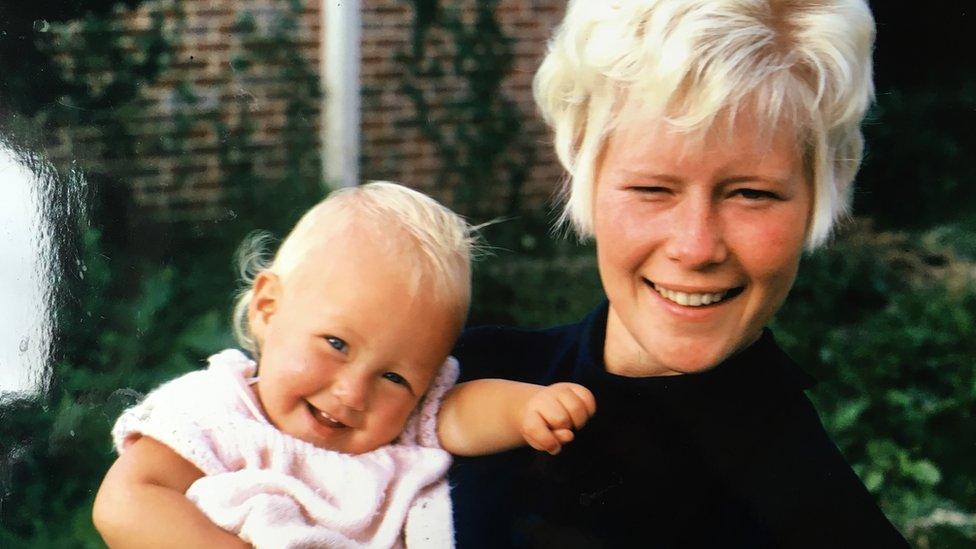Wife-killer Russell Causley faces UK's first public parole hearing
- Published
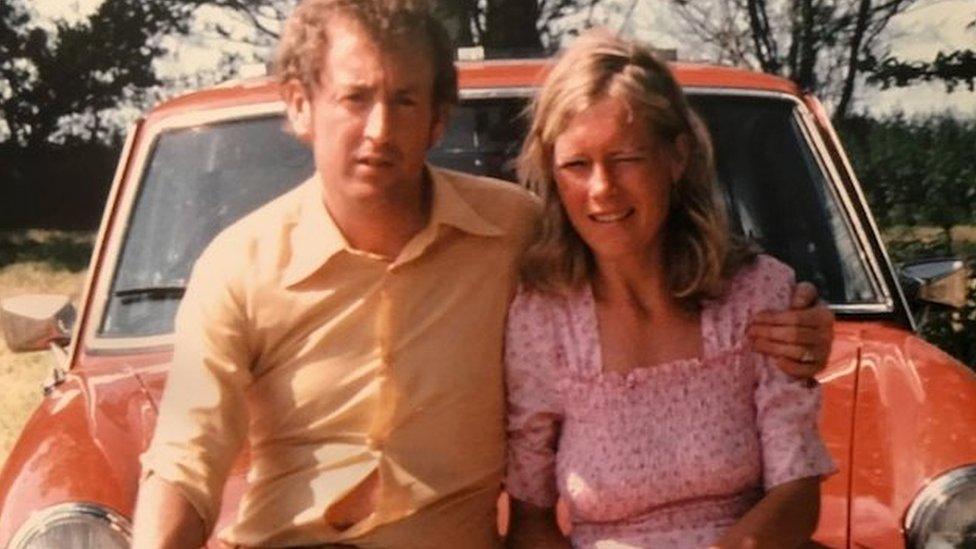
Russell Causley married his wife Carole Packman in 1965
The parole hearing of a man who killed his wife but never revealed where her body was will be the first in UK history to be heard in public.
Russell Causley, now 79, murdered Carole Packman in Bournemouth in 1985.
Causley was only brought to justice a decade later after he made a botched attempt to fake his own death as part of an elaborate insurance fraud.
The Parole Board confirmed Causley would now argue for his release during a hearing set to take place in October.
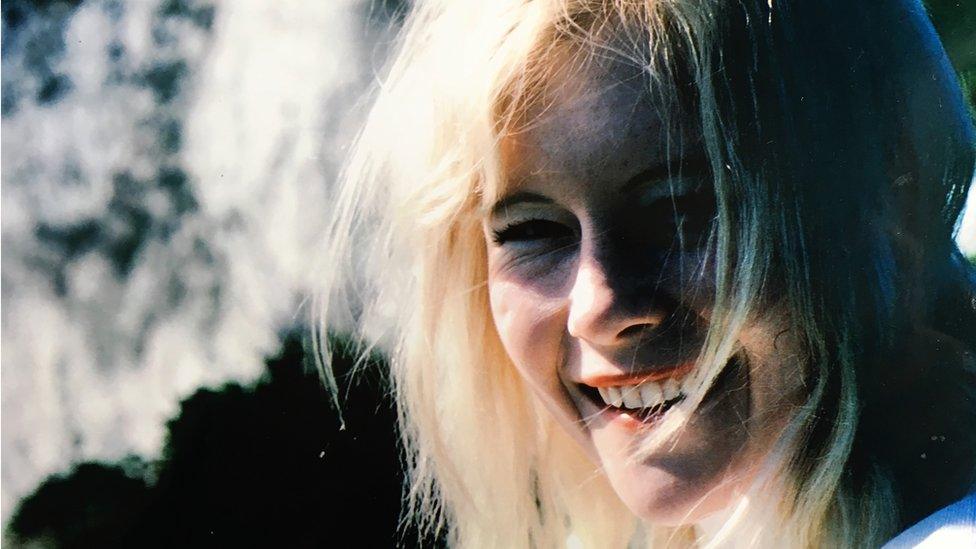
Carole Packman disappeared in 1985 aged 40 and her body has never been found
The hearing will take place at the Parole Board's offices in London, with Causley appearing on a remote live feed from prison.
He was jailed twice for Mrs Packman's murder - in 1996 and, after a quashed conviction, again in 2004.
Mrs Packman's daughter Samantha Gillingham, who has long-campaigned for Causley to remain behind bars, told the BBC the hearing would be a "momentous moment for my mother".
Changes in the law to allow public hearings to take place were introduced in July.
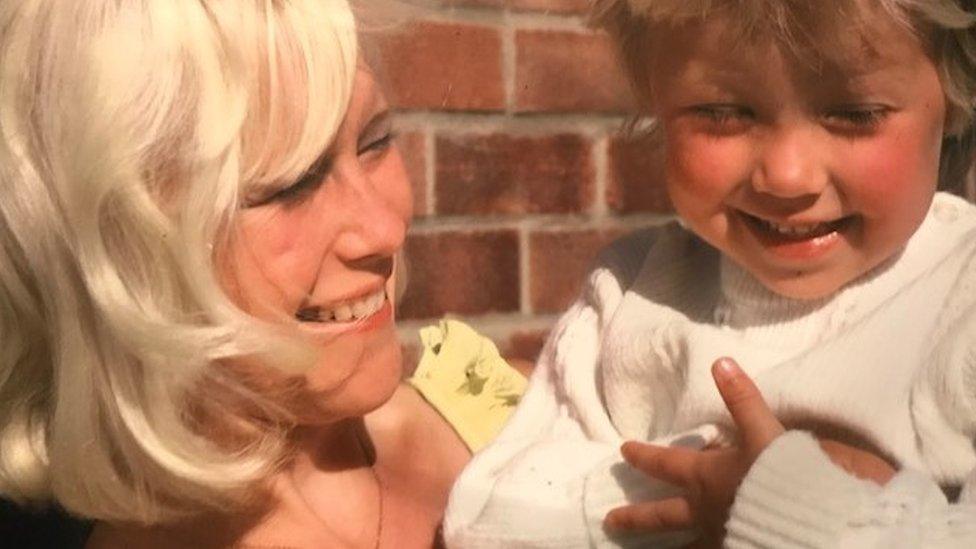
Sam Gillingham desperately wants to know where her mother's body is
A spokesperson for the board confirmed Causley's would be the first - ahead of notorious prisoner Charles Bronson, who was the first person to request a public hearing.
Causley had been having regular parole hearings since becoming eligible for release in 2012, and was freed in 2020.
But he was returned to prison last year after he broke the terms of his licence by failing to check-in with his probation officers.
At the time, Mrs Packman's family said they feared Causley had used his release as an opportunity to visit her body.
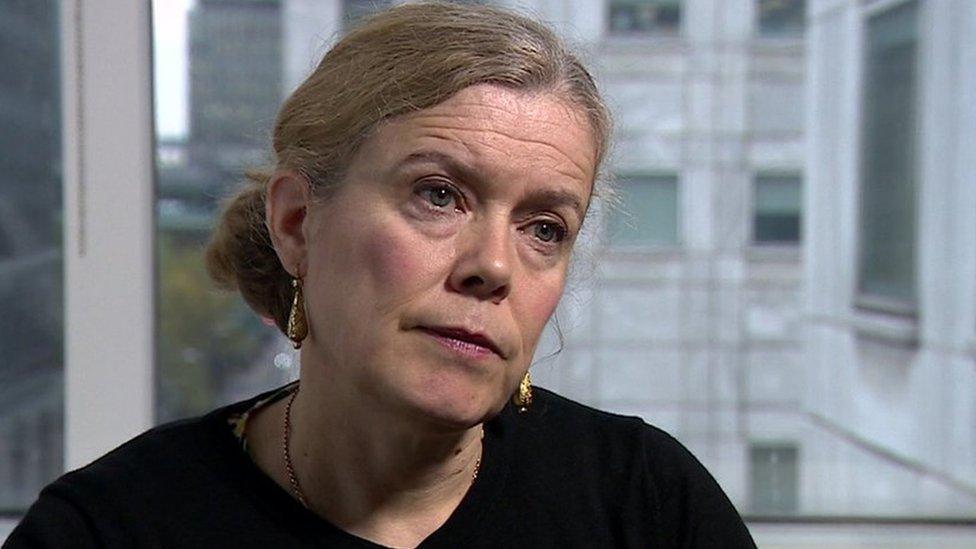
Caroline Corby, chair of the Parole Board, made the decision to grant a public hearing
Caroline Corby, chair of the Parole Board, said Causley had not wanted the hearing to take place in public.
"I have decided that there are special features, which set it apart from other cases, which may add to the proper public understanding of the parole system," she said.
These include the fact that Causley's is the first case to be considered of a killer who has not disclosed the location of their victim's body since a new law was introduced in 2020 that places a legal duty on the board to consider the anguish this causes.
Ms Corby concluded: "I have carefully considered Mr Causley's representations and have concluded that the interests of justice outweigh the points raised on Mr Causley's behalf. I therefore grant the application for the hearing to be held in public."
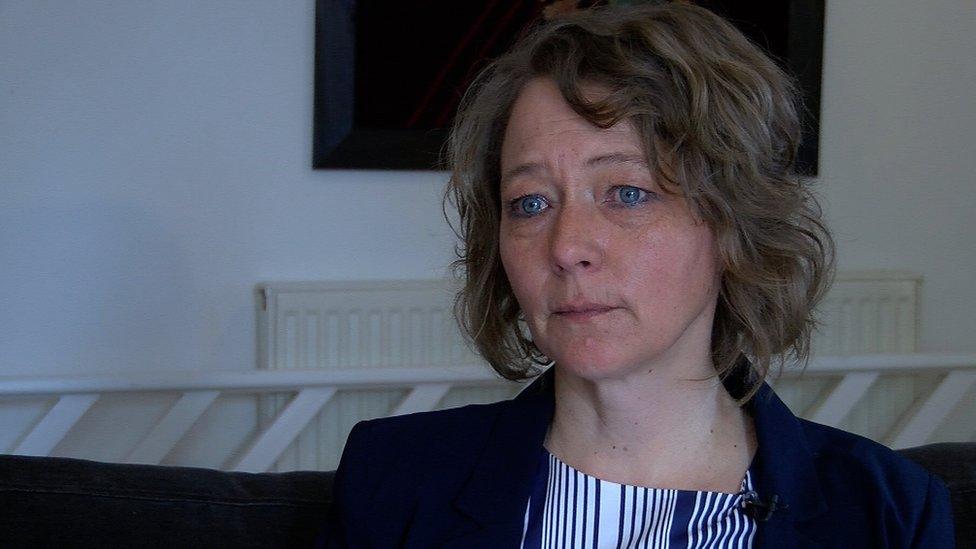
Samantha Gillingham has been campaigning to keep her father behind bars
Before Mrs Packman's disappearance, aviation engineer Causley had had an extra-marital affair with a colleague in the 1980s and moved his new lover into the family home.
The last confirmed sighting of his wife, who was aged 40, came at a solicitor's office where she inquired about getting a divorce.
Mrs Packman's then-teenage daughter later reported her missing to police, but Causley created a fictitious paper trail to make it seem as though she was still alive.
He then kicked his daughter out of the family home, forcing her to live in a children's home.
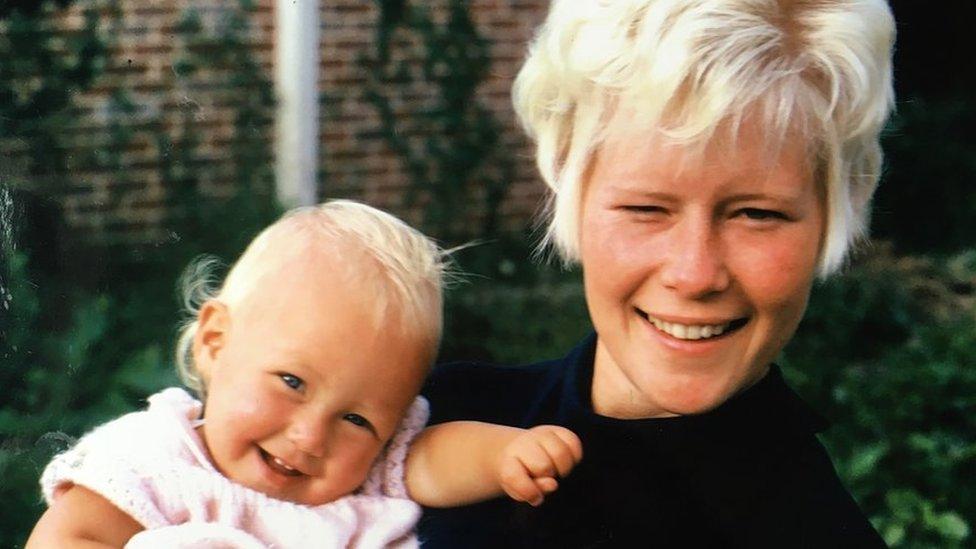
Carole Packman's daughter Samantha (pictured as a baby) was told by her father that her mother had walked out on the family home
It later emerged Causley had hidden his wife's belongings in a secret storage unit to which only he had access.
But it was in 1993 when evidence of his criminality first came to light, after it was reported he had fallen overboard on a yacht near Guernsey and was presumed dead.
Detectives later found him in a pub with the woman he had been having an affair with. They then discovered she had lodged a £790,000 claim on Causley's life insurance.
It was when he was jailed for fraud that police looked into Mrs Packman's disappearance again and accounts emerged of Causley being violent and psychologically abusive to her and their daughter.
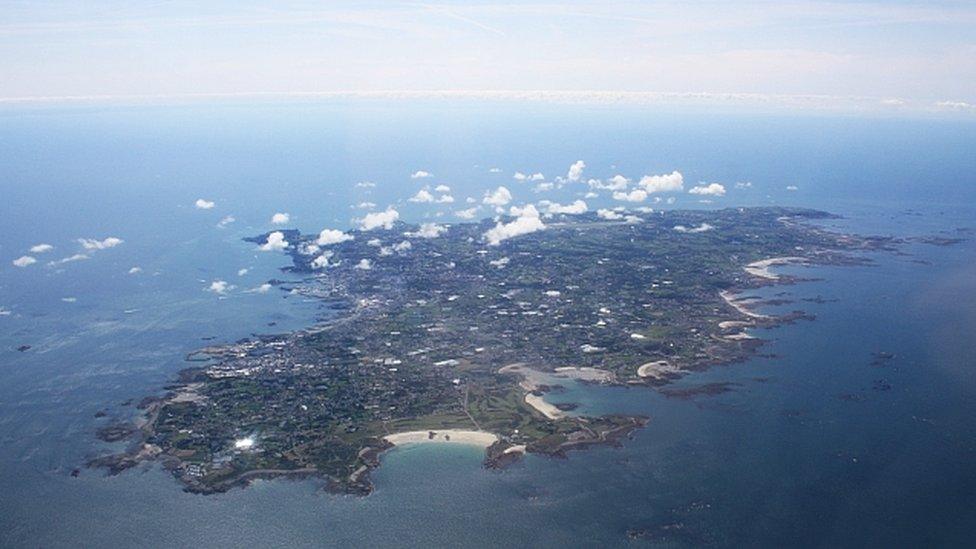
Russell Causley was reported missing during a boat trip off the coast of Guernsey
Causley's trial heard he told fellow inmates details about how he carried out the murder and disposed of Mrs Packman's body.
But he repeatedly changed his account of what happened and always refused to assist authorities with their hunt for her remains.
Detectives have since said he sent them on a "cat and mouse" search for his wife's body, with the family accusing Causley of "taunting" them from his prison cell.
As he was jailed following his first trial in 1996, the judge described him as "wicked".
That conviction was later quashed but he was found guilty of murder again in 2004, after his own sister broke her silence and revealed Causley had confessed to her that he had murdered his wife.

Follow BBC South on Facebook, external, Twitter, external, or Instagram, external. Send your story ideas to south.newsonline@bbc.co.uk, external.
Related topics
- Published24 August 2022

- Published4 August 2022
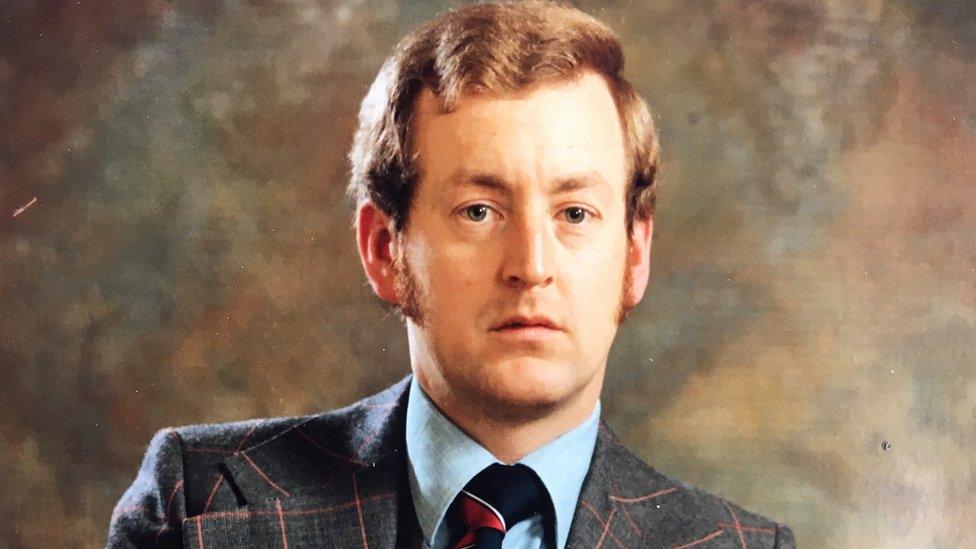
- Published3 August 2022

- Published27 July 2022

- Published29 November 2021

- Published3 March 2020
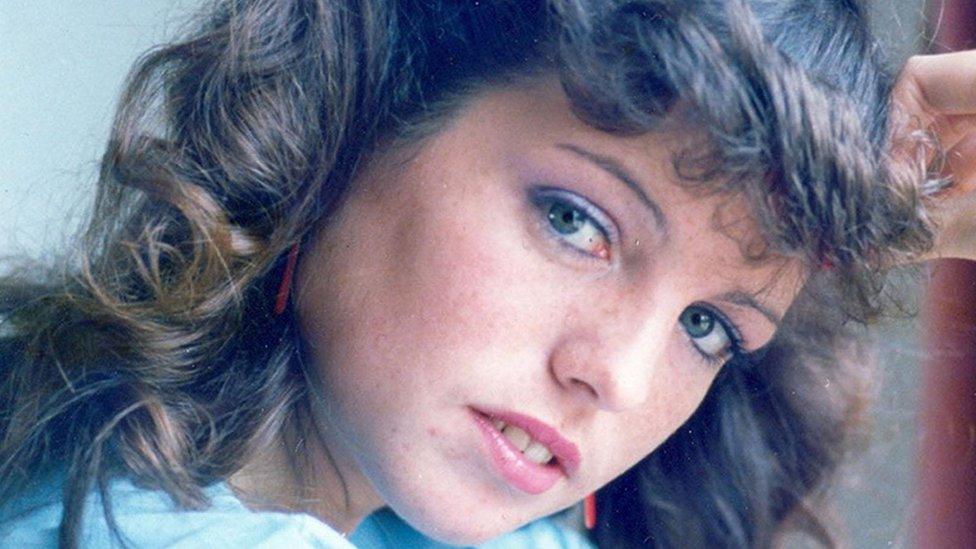
- Published21 May 2018
